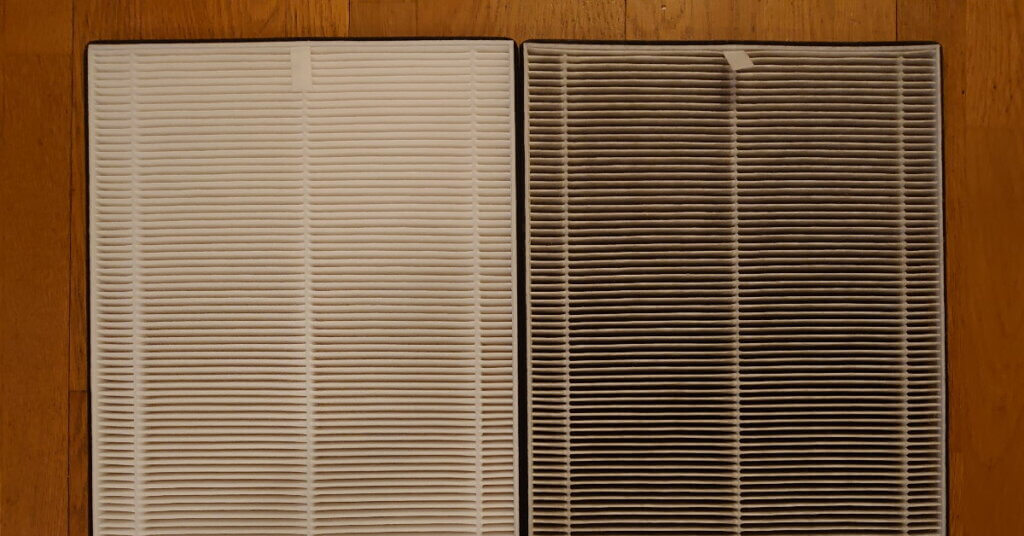Air purifiers use a couple of different filters for trapping the dust, pollen and pet hair floating around your home. The different filters are designed to take specific parts of the pollution and trap them inside the purifying unit, storing them inside the filter’s membrane. Over time these particles build up and decrease the efficiency of the unit.
A good HEPA filter filters up to 99.5% of PM2.5 particles floating around and it will degrade in performance over to course of time, that’s why it is important to regularly change your air purifier filters. Replaceable HEPA filters should be replaced every 6-12 months, depending on air quality and environmental factors. Read the manual to get the specification for your unit.
How To Tell When HEPA Filter Needs To Be Replaced
The best way to know if a HEPA filter needs replacing is to monitor the PM2.5 particles inside your home. An air purifying unit with a fresh HEPA filter should filter up to 99.5% of PM2.5 particles inside if it’s the right dimension for the space. Monitoring the level will show the trend after months of using the filter, and how the value of particles will increase. If the efficiency of your filter is below 95% to 90%, then, it is time to replace your HEPA filter.
The air purifying unit consists of three different types of filters, mesh pre-filter, HEPA and activated carbon. There are other types of filters that will have different intervals of cleaning or being replaced. Most units have indicators showing when the different filters need to be changed.
How Often To Change Air Purifier Filter
How often you need to change the air purifier filter depends on the type of filter and the model of the unit. Here are some general recommendations on when to change them depending on the type.
- Mesh Pre-Filter: Should be cleaned every 2-4 weeks
- HEPA: About every 6-12 months.
- Activated Carbon: About every 6-12 months.
Disadvantages of not replacing the HEPA filter in time
Not replacing your HEPA filter can lead to some disadvantages and in the worse case cause your air purifier to fail over time.
- Reduced efficiency
When the HEPA filter element is blocked by pollutants, the airflow from the air purifier will decrease and reduce the efficiency of the unit. This might result in the unit not being able to keep up with the rate of new pollutants entering the space, reducing the output of the unit. - Lead to secondary pollution
There is a risk that the accumulated pollutants will become a breeding ground for bacteria on the filter surface. The air purifier will then blow these bacteria back into the indoor air leading to secondary pollution of the indoor air. - Damaging the air purifier system
When the HEPA filter is getting clogged it becomes hard for air to pass through. This will put extra pressure on the fan system and especially on the motor. Not replacing the filter will risk damaging the components or overloading the motor, reducing the service life of the air purifier.


